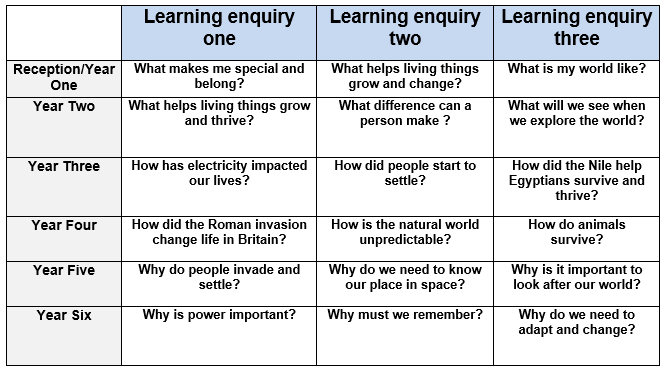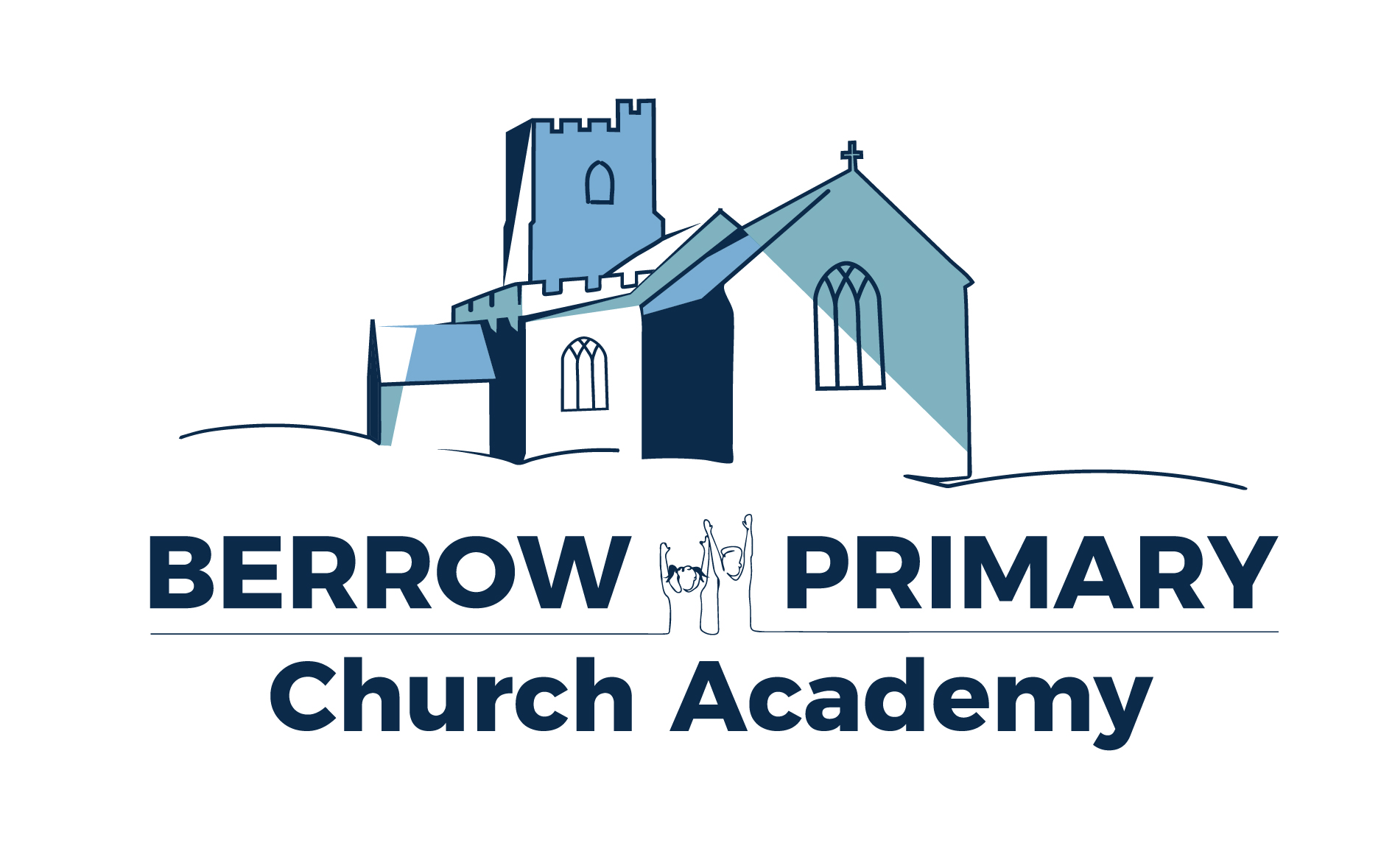Our Curriculum
“The curriculum is everything you say and everything you do”
Professor Mick Waters
Intent
Our curriculum has been well-designed with the aim that children develop a deep love of learning. It is far more than simply the subjects we teach; our intention is that our children leave our schools with strong characters and the passion and knowledge to make a positive contribution to our world. We believe that learners are at their most successful when their imagination is stimulated, their curiosity is heightened and their learning makes links to their own lives and the wider world.
Our curriculum is a balance of discrete subject teaching where appropriate and is taught through big questions which foster enquiry led learning experiences. It is infused with experiential learning and authentic contexts that engage children in their local area before moving further afield ensuring that all learners have a clear sense of self and a sense of place. Children are at the heart of the curriculum. We ensure that our well-sequenced, progressive, ambitious curriculum starts with our youngest learners through what questions, develops to how in lower key stage 2 and progresses to answering why questions by the end of their primary years.
Cognitive development, emotional literacy and vocabulary development underpins our approach. Our big questions are created from the National Curriculum to ensure that children develop their curiosity and are able to formulate and present an answer through a ‘presentation of understanding’ which requires the children to share their learning with others. In this way they not only learn knowledge but practice character traits such as collaboration, communication and courage.
The core intention of our curriculum is for our children to develop a deep body of substantive and disciplinary knowledge ensuring that every child knows more, can remember more and can do more. Alongside the substantive bank of knowledge and skills, children are encouraged to develop ‘states of being’ where they can think like a subject specialist. This enables our children and teachers to make connections across subjects.
Our curriculum is underpinned by cognitive development anchoring all aspects of learning to reinforce personal identity and the present day, essential in creating self-aware individuals. As they develop, we will strive to help them connect to the immediate environment/ community/ country until they are able conceptualise abstract themes. Children are immersed in quality texts which supports the development of a rich vocabulary and a real understanding of stories. Through clear, planned progression, the curriculum has woven knowledge, skills, vocabulary and concepts throughout all the enquiries studied. The curriculum has strong links with the local area and the UK and makes links to significant people, places and events within the locality and beyond.
The curriculum prepares children to live in their world and to be able to contribute as knowledgeable, responsible and compassionate citizens. Humanitarian values are integral throughout the curriculum and contribute to the legacy that we give to the world through the generations of children that journey through our school.
Implementation
At Berrow Primary Church Academy, we teach the National Curriculum through 21 x 12 week learning enquiries in Reception to year six; three per year for each year group. English and mathematics are taught discretely although are also linked to the wider curriculum learning where appropriate. Each learning enquiry incorporates mini enquiry questions/ milestones. This is an example of what that big picture planning may look like although each of our academies adapts this to fit their own locality and needs of their specific children.

Each learning enquiry builds upon prior learning and concepts are mapped across to ensure that children have the opportunity to build upon existing knowledge, revisiting and understanding more as they go. Our history curriculum is organised chronologically in terms of British history from KS2 onwards. World history builds upon concepts learnt from one learning enquiry to the next. Examples of key concepts studied include exploration, settlement, power, chronology etc
Impact
The impact of our curriculum will be measured by ascertaining how much children know and can do from one learning enquiry to the next. We will evaluate what knowledge and understanding our children have gained against age related expectations.
‘Learning is defined as an alteration in long term memory. If nothing has been altered in long-term memory-nothing has been learned’
Sweller et al
Assessment will be part of everyday classroom practice combining a responsive teaching approach with time given to children to make improvements and correct misconceptions. As well as ongoing assessment, at the end of each learning enquiry a dedicated cycle of Review, Revise and Reflect will include opportunities for summative assessments (including nationalised tests, self and peer quizzes) and the revision of skills and knowledge and an opportunity to reflect on learning. This could be through celebration of learning events including presentations, published pieces, art galleries and class museums etc
If you would like any further information on our Curriculum please contact the Principal, Charlotte Bradley

